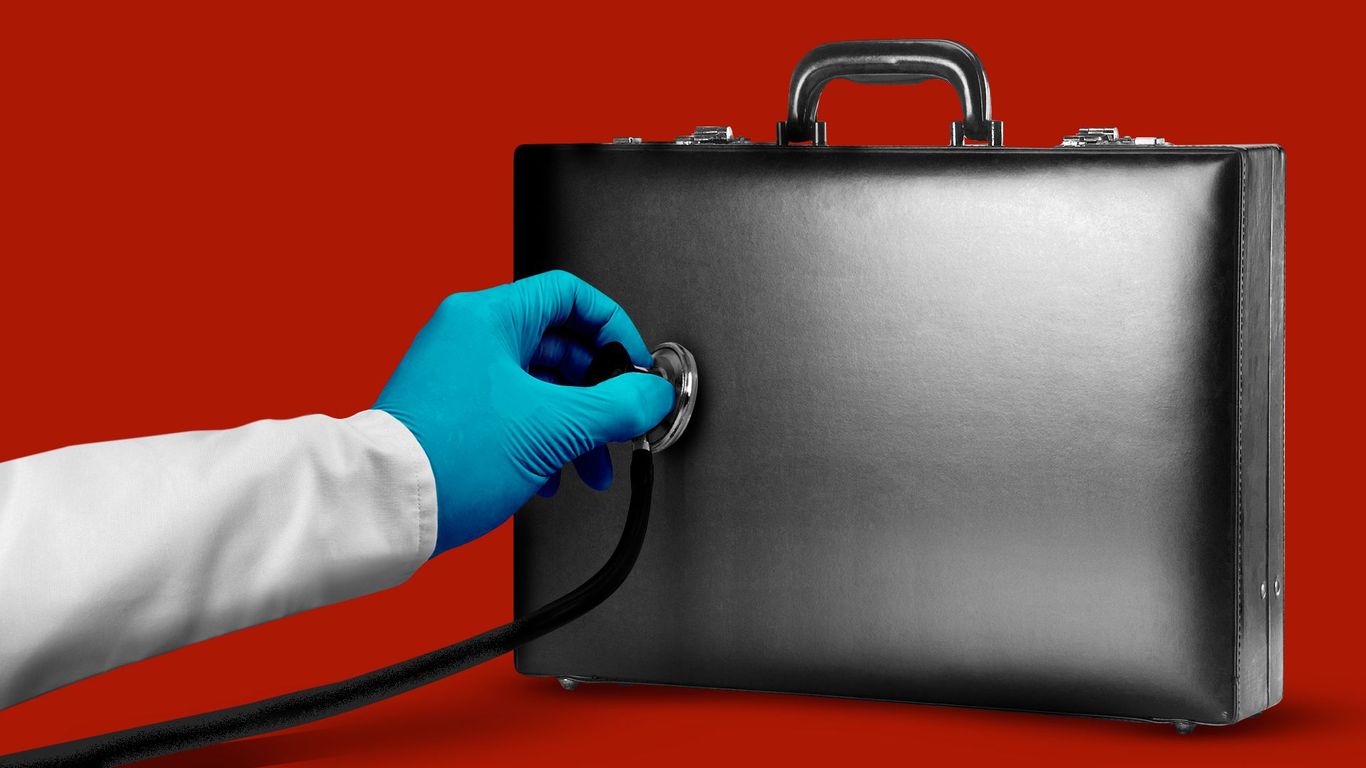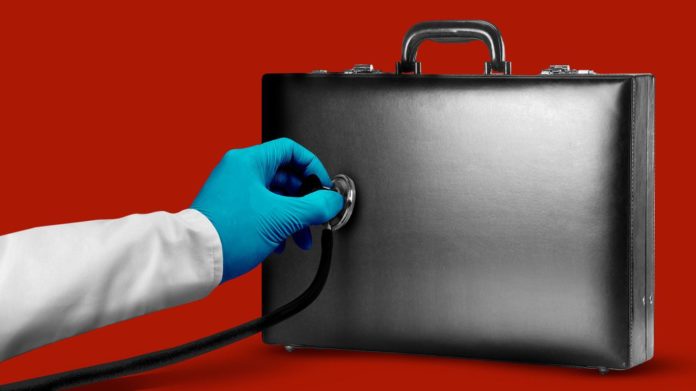
The more than 150 million Americans who get their health coverage through work face significant inequities by race and ethnicity while managing complex health conditions, a new analysis from Morgan Health and NORC at the University of Chicago finds.
Why it matters: While there’s a perception employer-sponsored insurance delivers robust coverage, researchers found major gaps in how certain socioeconomic groups in plans managed chronic disease, accessed care and dealt with behavioral and substance use issues.
What they found: Black enrollees in employer-sponsored plans were almost 17 percentage points likelier to have high blood pressure than white enrollees, after adjusting for age and sex.
- The rate of undiagnosed diabetes was about 3 percentage points higher for Asian, Hispanic and Black enrollees than white enrollees.
- Black, Asian and Hispanic enrollees with low-risk pregnancies were more likely to were undergo a C-section than their white counterparts, which can increase the risk of infections, blood clots and other complications.
- The percentage of lesbian, gay or bisexual enrollees reporting serious psychological distress was higher than for straight employees.
Go deeper: Economic barriers also loomed large: 6.9 percent of enrollees reported missing medical care due to cost, 9.8 percent skipped prescriptions and 11.9 percent reported difficulty paying medical bills.
- Black enrollees were 4.9 percentage points more likely than white enrollees to have visited an emergency department — often a sign of less accessible care.
- Black and Hispanic enrollees were more likely than white enrollees to be food insecure.
The findings were based on government surveys and interviews before the pandemic but researchers noted COVID-19 has made pre-existing disparities worse.
The bottom line: Health inequities aren’t confined to Medicare, Medicaid or uninsured populations but are present within major employers’ workforces.








